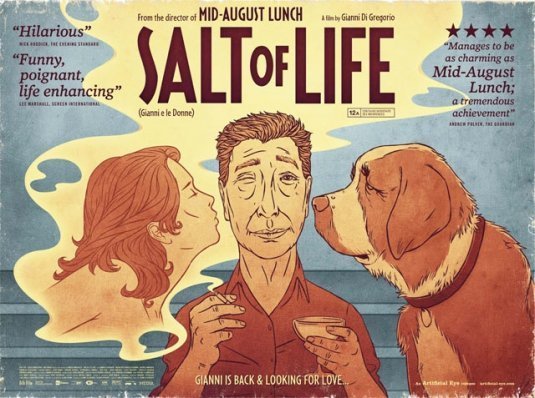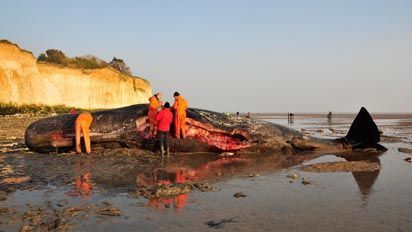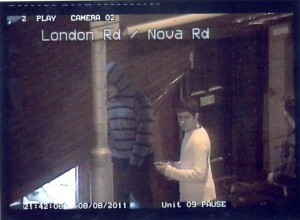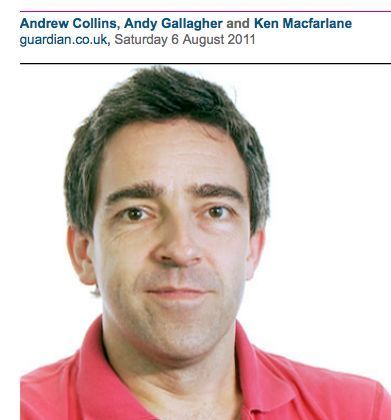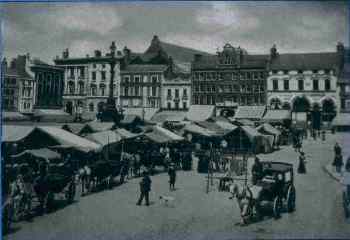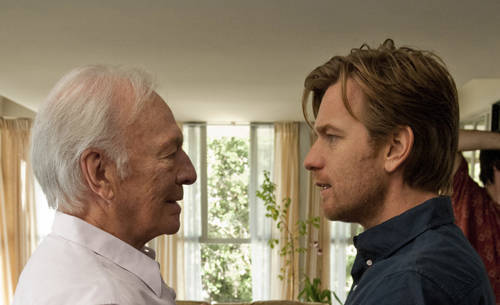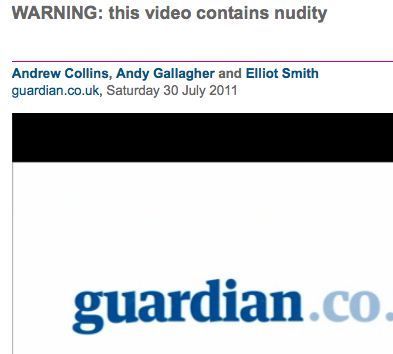Andrew Collins's Blog, page 51
August 17, 2011
Good day, bad day
Right, all can be revealed. I attended an advance screening of the film One Day on Thursday, August 7. It is released next Wednesday, August 24. Before attending this screening, which was not the first, by the way, but a big one, at a West End cinema and full of real people who must have secured tickets through magazine and newspaper offers (because, to generalise wildly, they all seemed to be young women), I was asked to sign an embargo form. This is common practice with film screenings of big movies, and – based on the number one bestselling novel One Day by David Nicholls, which has sold a million copies in the UK alone, and has been translated into 40 languages – One Day is a big movie. I was surprised to have to sign an embargo, however, which forbade me from talking, writing and Tweeting about the film. just two weeks before release. (Usually when this happens, it does so only when a film is screened way ahead.) Anyway, I dutifully signed it, as, I was told, entrance to the screening depended on me doing so.
Boring detail: the embargo form was emailed to me with my e-ticket, but, oddly, I couldn't open the document. The film company, Universal, assured me that I would be able to sign the form on the day. In the queue at the Vue cinema, Leicester Square, I was indeed handed a form, which I cursorily read and signed while standing there, using my bag to lean on. I handed it in: usual drill. We must assume that everyone else in the screening signed the same piece of paper. However, I only found out after the event that this embargo was a super-embargo – as well as agreeing not to talk, write or Tweet about One Day, I had also agreed not to mention on social networking sites that I had even attended the screening!
This, for me, was a whole new level of film company paranoia. Obeying the standard part of the embargo, which ran until August 17, today, I Tweeted after the film that I would not be Tweeting about One Day until August 17. Playfully, people asked my opinion, and a short dialogue about films versus books ensued. At no point did I reveal my thoughts about the film. It was only a few days later that I learned about the super-embargo I had blindly signed. I removed my Tweets about One Day, although the horse had pretty much bolted. I then wrote to the film company expressing my annoyance at this new kind of embargo. What harm could come of me saying that I'd seen the film, I asked? And what next? Critics covering their faces with scarves and hoods on entering cinemas to see advance screenings? It struck me as preposterous, and I was assured by Universal that it was an edict from the US studio. It always is, of course. That's where the studios live.
I am 100% against film piracy. I'm with them on that. And I understand why films are protected by embargoes when they are screened so far ahead of their release. The studios have lost control of what used to be called "word of mouth" but which is no longer spread by mouth. The moment a film is seen, it can be "reviewed" by citizen journalists with phones and blogs, otherwise known as the public. It can be "reviewed" from inside a cinema, while it is showing, and broadcast to others in the queue outside. As such, with advance interest in films running to an all-time high thanks to the internet and the instant dissemination and broadcast of information, you can't expect them to just roll over. If I sign an embargo, I stick to it. This time, I accidentally broke it, but only because it was an insane embargo which I couldn't print out.
Here's why a studio might be jumpy about One Day – it is based upon a beloved book. A beloved book that has been out for two years, during which time it seems to have sold, constantly. I haven't read the beloved book, as you'll know I'm not a big reader of novels, preferring non-fiction, but I know plenty of people who have read it – and I saw them reading it on public transport, especially last year when it came out in paperback – and they all seemed to love it. (Except one or two who didn't.) That's how it sold a million copies. Books can burn slowly. Films cannot. They live or die, in box office terms, over a single weekend. And once word gets out that the film of One Day is just a perfectly serviceable British romantic comedy, it may be that some people who love the book won't go and see it after all.
Adapted by Nicholls himself, I'm assuming that we're in safe hands in terms of capturing the story and the mood of the book. The gimmick is that a pair of friends' will-they-won't-they relationship is told over two decades by way of revisiting them on July 15, St Swithin's Day, each year. I can see how this might work on the page, with each new chapter moving a year on. However, onscreen, with captions to indicate the shifts in time, it's harder to reset your imagination. If I'd directed it – and I didn't, Lone Scherfig (An Education) did – I'd have opted for black screens between each "chapter", with a simple caption stating the date. As it is, we get soft cuts, and artistic typography for the captions, and it doesn't help the viewer, I'm afraid. After all, not that much changes in terms of fashion or haircuts in a year, so it's much more difficult to make the jump. On the page, I guess it's much easier.
It's fine. It's a good story. Much of it is given away in the trailer anyway – except the ending – so it's not so much "if" as "when" for Emma and Dexter. They don't sleep together on July 15, 1988, graduation day in Edinburgh, and thus become platonic companions rather than lovers. She starts out frumpy but gets less frumpy. He starts out a bit of a prick, and becomes more of one. I will say no more than that. Jim Sturgess does "being a prick" pretty well. But Anne Hathaway, for all her obvious charm, can no more hide her exquisite beauty behind some glasses and funny clothes in One Day than she could as the frumpy PA at the beginning of The Devil Wears Prada. This is a casting problem. And she is a problem in another respect: she's not English. Emma is from Yorkshire; I only worked this out about a third of the way into the film (not having read the book – did I mention that?), when Hathaway suddenly sounded a bit northern, having sounded blandly "English" up to that point. It's definitely an English accent she does, but it's not a northern English one, or at least, only some of the time, which is a distraction from the drama.
I know why we cast Hollywood stars in our films, but at least in Four Weddings, Andie MacDowell was supposed to be an American, and there was humour and story to be derived from that. Hathaway was great as Jane Austen in Becoming Jane, but that was an "English" accent she had to do, and on olden days one, which helps. Hey, if I'm distracted by her accent in One Day, imagine how irritating it's going to be for those one million British fans of the book!
I'm sure the film will do fine. It is perfectly OK, if you like romantic comedies. There is some good support from Ken Stott and Patricia Clarkson, and Rafe Spall is the highlight of the whole film, but the episodic format means we get all too little of anybody apart from Emma and Dex. Apparently there is more in the novel about Dex and his mum (Clarkson), but you get more room to breathe in a book. Things are always squished in a film.
If you have read it, you'll be duty bound to see how the film turns out. But you'll know the story, and the ending. So in a way, even though you're the reason they made the film in such record time, and then got all worried about news and opinion of it being leaked, you're also the most likely to complain. Ironic really. But that's the market.








August 16, 2011
Gianni be good
If you caught the delightful Italian comedy-drama Mid-August Lunch two years ago – and if you didn't, watch it first – Salt Of Life will already be on your hit list. (I was virtually first in the queue at the Curzon when it opened there on Friday afternoon. If you're lucky enough to live near a Curzon in London, or a Picturehouse in other towns, or an equivalent arthouse, you really should seek this one out.) Mid-August Lunch and Salt Of Life form a pair. Both are written, directed by and star Gianni Di Gregorio, a man in his early 60s who used to be a late-blooming writer and assistant director and was afforded the luxury of producing, directing and starring in Mid-August Lunch after achieving great success as a co-writer of the amazing Italian gangster movie Gomorrah. Like it successor Salt Of Life, Mid-August Lunch (or Pranzo di ferragosto) was a very low-budget affair, and if it wasn't actually filmed in Di Gregorio's own apartment in Rome, it might as well have been. Even though the Gianni he plays onscreen is a fictional construct, you get the feeling that there's plenty of the real Gianni in there. And certainly, his easy, hangdog charm is the actor's work. If you're thinking Woody Allen, you're in the right ballpark. Although for Di Gregorio to launch this second career as an auteur in the autumn of his life makes him very different indeed.
What's lovely about both films – and in Salt Of Life, Gianni plays a slightly different Gianni, who's married with a daughter, but it's still "Gianni" – is that they concern themselves with ageing. In Mid-August Lunch, Gianni had to entertain not only his nonagenarian mother (Valeria De Franciscis Bendoni), but a gaggle of her friends, on a bank holiday; here, although the thrust of the story is his hapless drive to find a younger lover, his mother continues to dominate his life, now with a live-in nurse, a young woman Gianni naturally fancies, but who regards him as a grandfather figure. Almost as an act of self-torture, Giannia regularly walks the dog of the beautiful young raver who lives in the apartment downstairs. She kisses him sincerely as a thank-you, but as a daughter might kiss her father.
These are not sentimental portrayals of the passage of time and the advancement of years, nor gloomy warnings from the latter stages of life, but gentle, truthfully observed and witty slices of Italian family life. Di Gregorio is a hugely charismatic frontman, all teeth and eye-bags and chivalrous politeness. That he finds himself in his 60s lusting after women in their 20s and 30s somehow does not cross the line into lechery, and this comes from the performance, which is naturalistic – neorealistic? – and warm and self-effacing.
To add to the realism, all the actors retain their own first names, so Alfonso is played by Alfonso, Michelangelo is played by Michelangelo, and so on. (Gianni's relationship with his daughter's boyfriend, "Michi", is understatedly rich.) It's tempting to read it as a fly-on-the-wall documentary, and yet, actually, as a director, much of Di Gregorio's framing is poetic, profound and entirely cinematic, like the spot in the middle of the day when the sun glints through a row of trees onto the faces of old men and dog-walkers. Gianni passes three old geezers sitting outside a cafe on the same white plastic chairs and bids them hello and goodbye as he walks on by – they're like a benign version of the Sopranos – and later in the film, they seem to have rustled up a fourth white plastic chair, and Gianni is sitting in it – this is such clever storytelling, and funny, too, without it being a punchline.
To have co-written something as grim, violent and searing as Gomorrah, and then to have produced these two films is a huge leap. We must hope that Gianni – both real and fictional – has plenty of life left in him for future installments. Don't go and see Salt Of Life expecting gags and sparkling repartee (much of the dialogue consists of "ciao!" and "grazia" and "grazie" and "bene"), but do go expecting to want to move to Italy.








August 13, 2011
The news
Look! Some Guantanamo Bay inmates looting a whale! Actually, I don't review the news, which is all anybody's been watching this week, in my Guardian Telly Addict video – now available to view. Instead, I turn to three programmes that offered welcome respite from the Current Situation: the charming Who Do You Think You Are?, with June Brown, BBC1; the hilarious Shooting Stars, BBC2; and the oddly mesmerising Inside Nature's Giants, C4. Warning: contains scenes of sperm whale innards that some viewers may find a bit yuck.








August 11, 2011
We are not abused
This is by way of an administrative apology, really. You may have encountered a bit of trouble leaving comments on my blog for the last month or so. Only today, I've had one of you leaving a perfectly legitimate and interesting comment three times, clearly out of frustration that it didn't appear the first time you posted it. Well, just for the record, the comments are moderated, so if I'm away from my computer (and I don't use a smartphone, so unless I'm sitting down, I'm not online), comments are queued. However, to make matters more inconvenient for you, I have had to add in a spam filter and a registration wall in order to discourage abuse. Clearly, I'm not going to go into any details, as the haters and the irritants usually do it to get attention, and even by typing this I'm sort of indirectly acknowledging their existence – but it's a necessary level of protection for me. I don't invite abuse. I do my best to write in a fair and balanced way – irritatingly so, at times, I should imagine – and even in my critical writing, about films or books or TV shows, I make it my business not to slag off for its own sake. I've done my slagging off. When I was a hungry NME journalist in my twenties, I'm sure I wrote some horrid things about Elton John and Mick Hucknall, but it was in the spirit of the publication and anyway, you grow out of that.
As someone who writes, and broadcasts, in the public domain, I accept that I am fair game to a degree. Also, as a user of Twitter, I'm above the parapet by choice. But I do not accept abuse, especially when it is posted anonymously. So I've put in a few mechanisms, provided by WordPress, to keep the tiny minority of timewasters at bay. I have an email address which is public and available to all, but to use it requires an email address, and those who abuse and waste time are not looking for a dialogue. They are, as I've stated before, doing the equivalent of knocking on your front door and running away.
So, once again, apologies if it's harder to get in than it was once, but you'll respect my reasons for doing it, I'm sure. You are the good guys and girls. I welcome comment. I encourage dialogue. And a lot of you read this thing now, which I really appreciate, and as proven by the comments left after the more serious recent entries about the financial meltdown and the riots, an encouragingly fair and intelligent debate often ensues.
When I'm on the radio, with text and email and social networking in full swing, it's a piece of piss to lob an insult at me, or my Saturday morning co-host, and yes, it stings for a few seconds, and the first instinct is to reply, but you must never do that, as it seems to be what a lot of anonymous idiots are fishing for. On Twitter, if someone has a go at me, I can block them instantaneously, and then not only will I not hear from them again, they will not hear from me again, so everybody should be happy. They can go and slag off someone else. The Guardian Telly Addict review worried me when I started it, as a minority on the Guardian website use it as a forum for rampant nastiness, but they seem to have either been very kind to me, or disinterested, either of which is a result.
Tim Adam wrote an interesting piece on the psychology of anonymous online abuse in the Observer a couple of Sundays ago, which didn't exactly crack it, but at least organised a few examples. Have a read of it. We've seen a lot of people wearing masks to achieve anonymity and doing stupid, despicable things this week – in real life – and I guess anonymous looting on CCTV in broad daylight in some cases puts online abuse into perspective. It's braver to go and loot a shop, but only marginally.
I'm not sure why what I do attracts the abusive. I'm not really a table-banging shouter. I have shall-we-say unconventional views on the culling of animals and the rights of complementary practitioners to go about their business, but I have learned to keep these views to myself, rather than broadcast them here, as you will have noticed. Why? Because I do not set out to rub anyone up the wrong way. By and large, I will be preaching to the converted by even saying this, but I'm saying it anyway. And I'm certainly not fishing for compliments or ego-stroking, believe me. I have long since stopped visiting the Word message boards where I seem to draw frequent slings and arrows, and yet I adore that magazine, and feel it is a privilege to write for it; this is a shame, but what's the point of raising my own blood pressure defending myself, and my work, against a handful of insult-mongers? Best to retire gracefully and let them get on with it.
To paraphrase something Michael Moore once said to me, when I asked him how he stays so certain that he is right: "If I'm wrong, I'll change my opinion and then I'll be right again."








August 10, 2011
A riot of my own
Never been in a riot, as The Mekons' first single had it – a riposte to the Clash's White Riot; equally, as of this week, I've never been so close to one. I suspect this may be the experience of others. I live in South London, and although the riots began in faraway Tottenham on Saturday, and spread to even-further-away Enfield on Sunday, the newspapers' handy, cut-out-and-keep riot map of London quickly sprouted little flame symbols right across it, east, west, north and south. Shops were looted on Monday night in Brixton and Streatham, where I lived for 15 years, and certainly yesterday, as I travelled home through South London, shops and businesses and pubs were closed and boarded or shuttered up, so there was no room for geographical self-satisfaction. This unrest affects us all in London – and now affects people in Birmingham, Nottingham, Bristol, Manchester and pretty much anywhere with some shops. So, as I write, I've still never been in a riot, but I have lived in a riot-torn city.
In 1981, when Brixton, and subsequently Handsworth, Toxteth, Southall, Hyson Green and Moss Side, went up in flames, I was in Northampton, which remained untouched. (The closest the flames came was Bedford, which was still a county away.) I was working in Sainsbury's on the Saturday when the riots were rumoured to be coming to town. My job was to collect shopping trolleys and I spent a lot of my day out in the Grosvenor shopping centre, Greyfriars bus station and adjoining car parks. I was rounding up some trolleys in the bus station when I heard the sound of young, male voices shouting; it's kicking off, I thought. I came up with a brilliant plan of action, which was to climb inside one of my trolleys for protection. It might have been a stupid plan, but I like the fact, retrospectively, that I came up with one. As it turned out, the young, male voices belonged to a very small group of young males, who ran through the bus station, trying to frighten everyone, but quickly ran out of steam, and just sort of stopped. They were a bit pathetic. But so was I for being scared. There was no Northampton riot in the summer of 1981.
This summer's riots are not yet burnt out, so we won't discount Northampton prematurely. On the Chronicle & Echo website, in fact, they talk about a number of copycat riot stories in the town turning out to be no more than unfounded, or even wishful, rumours. Eight people were arrested last night after some stone throwing on the Wellingborough Road, but that's it. (Actually, there's a debate going on, on the Chron website, about which number equates to a riot: it seems to be 12 people with "a common purpose".) As it happens, I spent yesterday in Northampton, visiting my parents. I went up on the train from Euston in the morning. Before the train left Euston, two teenage boys came into our carriage and sat down across each other from the aisle. For the record, one was white, one was black, although both spoke in the familiar patois of young people, which is essentially black.
I must admit, I was disturbed to hear the more loquacious of the two enthusing about the previous night's rioting in London. My estimate is that the boys were no more than 16 years of age, and yet he clearly believed the unrest to have been a spectator sport. He spoke as if he was there, but he might easily have just watched it on TV. Either way, he felt that it was exciting and cool – and, in his own young mind, justified – that people had looted shops. He spoke of the "Feds", which I now understand to be the de rigeuer slang name for the police. The Feds were clearly his enemy. His friend, much quieter, eventually fell asleep, so the other boy shut up. To be honest, I was glad to have had a safe opportunity to hear the voice of the disaffected teenager up close. The headrests of the seats meant that I didn't catch the boy's eye. I don't think he would have liked it if he felt he was being watched, although he was talking loudly enough to sound as if he wanted to be heard. (I hate it when two people sit opposite each other in a public space and raise their voices to be heard by their companion, by the way. It's so arrogant. But don't get me started on that.)
Here's the inevitable bit: the ticket collector came into the carriage, and politely requested to see the tickets of the two boys. He woke up the one who was asleep. The other one admitted he didn't have a ticket. He informed the ticket collector he was going to Milton Keynes. He was informed that the ticket was £17.50. The boy asked if he could pay for it at Milton Keynes, implying that he didn't have the requisite cash on him but could access it at his destination. The ticket collector was not satisfied with this option and informed the boy that he had to pay it now. After a bit of discussion I couldn't hear, the price was lowered to £8, so I'm assuming the boy told him he was a child. He still didn't have the money. The sleeping boy claimed that he had paid for a ticket, but could not produce it. The ticket collector repeated his request for the money, at which point the non-sleeping boy started using swear words, and was told that he didn't need to swear. The situation had turned a bit ugly.
Also in the carriage was a young woman – I'd say she was around 20. She leaned over from her seat and admonished the boys, saying, "We've all paid for our tickets, so why don't you pay for yours?" I admired her indignation but felt it was ill-placed. The ticket collector had control of the situation, and the non-sleeping boy answered her back: "Who the fuck are you?" The ticket collector advised her, in a calm voice, not to get involved. It was agreed between the ticket collector and the two boys that no money would be forthcoming, so the ticket collector left the carriage. It was patently obvious that he was either fetching someone, or calling ahead to the next station. When he was gone, the boys left the carriage and I could see them disappear into the toilet together. They were going to wait it out until Milton Keynes.
Apart from exchanging smiles of relief with the young woman, we kept quiet. We were glad that they'd gone. We pulled into Bletchley, and the boys did not reappear. If I were them, I would have done. Having told the ticket inspector they were getting off at Milton Keynes, it would have been cleverer to get off at the station before, and get the next train. When we pulled into Milton Keynes, the boys emerged from the toilet and came back into our carriage to get off the train. They now had their hoods up. Good disguise. Sadly for them, the ticket collector had called ahead, and there were about seven large looking men on the platform – let's say it was the station master, some other uniformed network rail employees, one security guard and another big bloke in casual clothes, who may or may not have been a police officer. The boys, worried now but keeping up the macho pretence, told each other that it was "the Feds" as they huddled by the door waiting for it to open. But the doors didn't open, except for the one that the staff opened manually to enter the train.
So, the boys were escorted off the train and questioned by seven men. It was clear that they were about to use the same story they had used on the ticket collector: one of them had paid for a ticket but could not prove it by showing a ticket, the other one convinced he could get the £8 at Milton Keynes. I can't lie, I was glad that their fare-dodging plan had been foiled. If they had booked ahead online, as I had done, they could have picked up one-way tickets to Milton Keynes from Euston for £6. It was a bargain.
It was a minor, unimportant, even everyday incident in the broader scheme of things in The Current Situation. But it gave an insight into the mindset of two very young boys who seemed to have either been involved in the rioting, or had been supporting it from afar. Two boys who felt that the "Feds" were the enemy, and that stealing goods from shops, throwing bricks and setting fire to property was a cool way to behave. I will not read any more into what kind of boys they were. But they were certainly the kind who felt that they could use trains for free. (Were they coming home to Milton Keynes? Had they come down to London to join the fun? Or did they just hop on the first train out of Euston that left from a platform with no automatic ticket gates or guard?)
I've spent so much of the last three days watching 24-hour news, I am convinced it is a power for evil rather than good at times like these. We didn't have Sky News or News 24 in 1981 – your chance to get on TV! It's quicker than applying to be on Britain's Got Talent! – and, as such, I think they burnt out more quickly. Social networking has been a tool for spreading information, but it has also been a tool for organising clean-ups, so it's hard to call for its abolition, like someone who has never used Twitter will probably already had said in the Mail, a newspaper I'm avoiding even more stringently than ever currently. We live in a 24-hour culture, but we need reasoned coverage, like the sort you get in newspapers – remember them? – or on evening news programmes, not the endless replaying of the same footage, which gives the impression that a student is having his backpack robbed every 15 minutes, and that a burning building is still burning 24 hours after it was lit. I speak as someone who has been glued to Sky and the BBC since Saturday, but glued to it and hating myself for it. These are riots that take place mainly in the evening, not all day. (Perhaps if it rains tonight, the looters will stay at home with their mums. I am not the first to note that riots generally take place in clement weather.)
Like Brixton in 1981, the riots had a flashpoint, which was an incident involving the police, which has led to civil unrest, violence and looting. While I obviously don't condone violence, when it erupts against the police, what might very leniently be described as an angry response rooted in a broader political and social malaise loses any precarious moral high ground when it turns into, or leads to, the looting of shops, and the burning of property. This time, although the shooting of Mark Duggan is looking to be a pretty regrettable affair, the violent reaction to a potential unjustice seems to have turned into looting almost immediately, and that certainly seems to be the driving force behind the subsequent riots occurring outside of Tottenham, which fall squarely under the banner of "copycat." Social deprivation, racial tension, unemployment, poor policing, decimated public services due to the cuts – these universal grievances carry a moral weight. Until you use them as an excuse to not pay for your tracksuit.
I do not discount the broader political and social malaise, but it's so much easier to take a reactionary, even right-wing view of those participating in social unrest if all we see is young people – and it is mostly young people – going into Currys and Carphone Warehouse and walking out with stolen goods. How quickly any political high ground is lost. You have a problem with the police, you don't burn down and loot local shops where local people work. You don't ram buses with recycling bins. You don't burn down a post office. You don't pillage from a minimarket whose owner probably doesn't have contents insurance.
These riots have long since stopped being a protest. They have turned into a free-for-all. (Check this excellent, on-the-ground report from the Guardian's redoubtable and unflappable Paul Lewis on the demographic of the rioters.) Friends and relatives of Duggan have repeatedly distanced themselves from the disorder and want no part of it. These riots are a terrible advert for young people, the majority of whom, let's agree on this, are not doing it. They're a terrible advert for the police, who failed to keep control for three nights' running in London, and only managed it last night because 10,000 more officers were drafted in. (The Duggan inquest is already a terrible advert for the Met, who, once again, seem to have put out one statement, and then contradicted it with another one. Mind you, nobody is running the Met at the moment, due to resignations over the phone-hacking scandal.) And they are a terrible advert for London. And Manchester. And Birmingham. And elsewhere.
I think of London as a city where people of all ages, races, creeds and hat size generally rub along together – a brilliant advert for multiculturalism and community spirit – and then, to quote the appalling Pearl Harbor, all this happens! If you live in Manchester, or one of the other fine cities and towns with broken shop window glass underfoot this afternoon, I expect you feel largely the same. We ought to be good at this getting along with each other shit.
The two boys on my train may or may not have been masked up and rifling around the broken glass in a JD Sports window in London on Monday night. But their apparent glee shocked me. Other masked crusaders have been caught, or interviewed, by the media, expressing a similar glee. My usual sweeping complaint about teenagers today is that they are disengaged and apolitical. I was happy when the student protests proved me wrong on that score – most of those on the streets were issue-driven and clued-up, and active, not passive. But I'm not hearing the same from the rioters of 2011. Now, you might say that this is because, on the whole, they are ill-educated, and students are more likely to be white and middle class, but when in the heat of the moment, a gaggle of them kicked in Millbank's windows and scared the shit out of blameless party workers pushing pen around in the offices there, the woolliest, most liberal bit of me almost let the students off the hook. But even that woolliest, most liberal part of me finds it hard to let the opportunists in hoods and scarves off the hook, because they are directing their anger at the wrong things.
If you want a revolution, you're going to have to break a bit of glass. But have a look at whose glass it is and ask who'll be paying for it to be replaced before you stick a boot into it. Or is my dazzling logic and perspective a bourgeois luxury?








August 6, 2011
I'm in
Sorry it's late, but my latest Guardian Telly Addict man-in-a-box is available to view. In it, I review the return of Dragons' Den on BBC2, C4′s The Secret Life Of Buildings (during which I refrain from accidentally pronouncing architecture critic Tom Dyckhoff's surname wrongly) and BBC1′s Saturday night special, John Bishop's Britain, which suffers from format fatigue. Have a look.








August 5, 2011
Buy! Buy!
This is a picture of a market. I understand it. On this market, people sell things to other people and the people who sell the things make sure that they sell them for a bit more than they paid for them, so that they can make a profit by which to pay for the opportunity to have a stall on the market and with enough left over to pay for things that they need to buy at other markets. What could be simpler?
All the newspapers today are reporting meltdown in the market. But it is a more complicated market. It is the stock market. It is not based upon things being sold, it is based upon the idea of things being sold. It is based upon selling the idea of something. The people who sell these ideas do not meet the people that they sell them to. In fact, most of the selling of ideas is done by third parties, who buy and sell the things that do not exist on behalf of the people who actually own the things, and are paid to do so. Already, this is a more complicated market than the market in the picture.
I am not very good at economics. I understand how much money I've got, which is a minus figure, as I owe money to a bank who foolishly lent it to me to buy a house I cannot afford, on the understanding that I will pay the money back to them by a certain date. Unfortunately, I have to pay them back more than the sum they lent me. This is how they make money. I make money by rearranging the English language, either by hand, or with my mouth, and every month, I hope that enough people pay me to do this for me to pay the bank what I owe it for lending me a sum of money. Any money I have left over after paying the bank, I am free to spend on whatever I like, although because I have a house, and a car, there are certain things I have to pay first, to insurance companies and to the council, for instance. It sounds pretty stupid when you lay it out, but I do at least understand it. Once I have bought food and household goods, I might have enough left over to go to the market and buy something nice for myself. Because I am self-employed, I do not have a boss, and cannot be sacked, but neither do I have any security. Those who pay me today are under no obligation whatsoeer to pay me tomorrow, or ever again. Because of this, I tend not to go the market to buy nice things as often as I'd like. Why? Because there is a recession on.
The recession started in 2007 and really started to get serious in 2008, when house prices fell and people who had been lent more money than they could pay back defaulted on their mortgages, meaning that the whole house of cards came crashing down. The banks and building societies had been lending money for years to people who couldn't pay it back based upon the idea – another idea – that house prices would just keep going up. They stopped going up and started going down. It turned out that all the countries that thought they were rich and doing well, were only rich and doing well because they expected house prices to keep going up, thereby making everybody richer without actually doing anything. If you watched Property Ladder with Sarah Beeny in the mid-2000s, one thing you knew was that the amateur developers who tried to increase the value of a property but spent too much in doing so by buying stupid taps could have made money by just doing nothing for three months. Because the market went up anyway while they were mucking about with taps.
There was a banking crisis, which I understood, because it was to do with the banks having lent money that wasn't theirs to people who couldn't pay it back, so they ran out of money, and the money wasn't even theirs. It was our money that they had lent to other people. Some people tried to get their money out of the banks but many banks had to be lent money by the government, who used the money we had given them by paying tax to help the banks. I'm not stupid, but I couldn't really work this one out. Since 2008-2009, the best thing I could think of doing to beat the recession was spend less of my money. So I did.
Now, we read the news and find that America, the richest country in the world, cannot afford to pay money back to the people who lend it money. Why is America rich if all its money is borrowed? It is rich because of an idea. The idea is: if everybody works really hard, especially the poor, and we allow the rich to keep all their money, they will create more money. The stock market deals in ideas. Wealth is an idea. If you do not own the house you live in, your house is an idea. You might own some of it, in that if you ran out of money, you could sell it to pay off the money you still owe, but it's not yours. Because Greece and possibly Spain and Portugal and Ireland are all in financial trouble based upon an idea – the idea being: all the money we have is borrowed but we might carry on making more money if house prices continue to go up – there are fears that the Eurozone will collapse.
As I believe I've mentioned, I'm not very good at economics, but I know that the single currency for some but not all European nations was introduced so that money could be simpler. Instead of lots of currencies which have to be exchanged all the time, some but not all European countries would have the same currency, which would make trading between some but not all European countries easier, and fairer. However, this Utopian ideal seems to be in trouble. Because Greece, which doesn't really make anything, or Ireland, which doesn't really make anything, or Spain, which doesn't really make anything, built the idea of their wealth upon the idea that house prices would continue to go up, and they have gone down, almost an entire continent using the same currency seems to be in more trouble than it might have been if it still had lots of different currencies.
I love Ireland. It is my favourite country. I have been there a lot, and regularly, over the past 20 years. It used to be a small, modest, rural economy, self-sufficient, surrounded by water, and with enough tourism to give it a bit of spare money to buy nice things at a market. It joined the EU, became eligible for all sorts of grants and funding, and built better roads. These were really good roads, and they joined the place up a bit. Having joined the Euro, Ireland started advertising itself as a great place for foreign businesses to move to. So lots of foreign businesses did indeed move there, as rent was low, tax was low, services were almost free, and labour was cheap. And money came in. And Ireland started building houses, which people who couldn't afford them borrowed money to buy. And people from other countries moved to Ireland to work for the businesses, and rented houses from landlords who had bought too many houses. Then, when it stopped being a good place for foreign businesses to be based in, the employers and many of the employees moved out again, to find a cheaper place to work and be based in, and Ireland's wealth, based on an idea, disappeared. This is how quickly ideas can disappear. Now the people of Ireland are moving out, which means less tax, and tax is not an idea, it is real. This is why U2 moved their business to Holland. This is what happens if you have actual money. You move it to where people can't get at it. (This involves not caring about the country you are moving it from, which U2 clearly don't.)
If the current recession, and the predicted next one, which I refuse to call a "double dip" as it makes it sound like fun, tells us anything about wealth is that it is only real for the wealthy. The rest of us might feel wealthy because we have credit cards and big tellies, but we are just as poor as we were when we didn't have them. Men in stock markets are moving money that doesn't exist around a huge, global market, and it's not our money, and yet the success or failure of the men who move it around affects us all. Why? Because global meltdown affects the amount of extra tax we are expected to pay on goods, and the amount of interest we have to pay the institutions who lent us money we can't afford to pay back.
The previous government in this country ran it on the basis of an idea, and that idea turned out to be a bad idea. They spent all our money, which was not even money we had in the first place, and then borrowed against money we had not yet paid them to save the banks which had lost all of our money. Luckily, this money didn't exist, so in a way, we had lost nothing, but we had lost nothing twice. Does that sound ridiculous? It should do. The current government didn't actually lose our money as they weren't in power when it was lost, but they have decided that the best way to pay it off is to put quite a lot of us out of work, so that employers won't have to pay us. But when we are out of work, other people who are in work have to pay us not to be in work, and it's not very much money, so we can't afford to go to the market and buy nice things, which cost more because the government have put up tax on nice things in order to pay themselves back for losing all our money, twice.
The bad thing about our government is that is that it is run by men who are rich. They were rich before they went into politics and don't know what it is like to be poor. (Poor being what nearly all of us are, in reality.) So they have come up with a Plan A that protects people who are rich, but hurts people who are poor. It is a shit plan.
If you are actually rich – in other words, you own the house you live in, something only the rich actually do – you can pay people to prevent you from having to pay the government what you owe them in tax. This is a luxury only the rich can afford. So the rich, the very people who should be paying tax, don't pay it. While the poor, which is nearly everybody else, pays tax that it can't afford, but can't afford not to pay. This is also an idea. This idea is called capitalism.
So all these sweaty men in coloured jackets and on phones we keep seeing on the news – who are, at the end of the day, just men with jobs they could lose as quickly as you could lose yours – are the most powerful men in the world, but unlike the people who work on the market in the picture above, they don't have anything to sell. They don't even have a stall. If you went up to the desk and tried to pay for the idea that they trade in with cash, they wouldn't have anywhere to put the cash, and you wouldn't have anything to show for it.
I wish the cakes weren't so pricy in the British Library. But the British Library, which is a public service, pays a private company to make and sell its cakes. This is not a market, as there is only one place to buy cakes inside the Library.








July 30, 2011
Good grief
Two impressive new films in two days at two Curzons, which I hope can be seen round your way. We took a punt on Beginners, despite a pretty dopey looking poster, on the strength of a beguiling clip on The Graham Norton Show, where star Ewan McGregor was a guest. Please do not be put off by the dopey looking poster, or indeed the capsule-review shorthand that it's "about" a man whose Dad comes out at the age of 75. It isn't "about" that.
It's written and directed by Mike Mills (not that one), whose work I am unfamiliar with – see that's the fun of reviewing films on a blog and not for a national publication, where such an admission would invite scorn and ridicule. He made a film called Thumbsucker, apparently, and before that loads of music videos, but none that stick in my mind. Well, he's clearly a talent, as he wrote and directed Beginners, and it's really rather beautiful. I've always found Ewan McGregor a likeable actor, but he's not always well cast, and struggles with the American accent, but as the bereaved son in Beginners – and it starts with his gay dad Plummer's death and flashes back, so it's not a spoiler – he finds amazing depth. Grief clearly brings out the best in him as an actor. This is a small film, low of budget, bereft of special effects beyond some brilliantly swift stills to illustrate McGregor's downbeat narration, and shot in that way where you can hear the traffic in the distance. It's set in LA, and boasts that dusty light that's so appealing and yet so melancholy if all is not well, and you get lots of still, warm nights. When one of the characters takes a detour to New York they may as well be visiting another planet.
Christopher Plummer has fun as the gay dad, and although we know he is doomed to die just a few years after coming out – because that's how it starts, with McGregor fastidiously going through his stuff, pouring his surplus medication down the toilet, and taking on his dad's almost-human Jack Russell, Arthur – there is a twinkle and a joy about him that cuts through any potentially mawkish tragedy. All of this makes it sounds like a comedy again, and it really isn't. McGregor's burgeoning, flailing, post-mortem relationship with Mélanie Laurent (best known for Inglourious Basterds) is suffused with melancholy and yearning, and has to be the sweetest I've seen since the flashback part of Blue Valentine. Although homosexuality was clearly an "issue" when Plummer was a younger man, it's heartwarming to see him embrace it in later life, when – certainly in California – it is less of an "issue."
Oh, and the dog speaks, but in subtitles. This flourish is handled so well, and so unexpectedly, you will buy it. The actor Cosmo is the star of the film. I'm not even a dog person, but I fell in love with him from the moment McGregor gives him a tour of his apartment.
Talking of being married, A Separation (or جدایی نادر از سیمین in Persian, and whose full title seems to be Nader and Simin, A Separation) is an Iranian domestic drama featuring scenes from a marriage that do not seek laughs. It's a hard film to watch, but a hugely rewarding one, if you're interested in other cultures. I understand it has been warmly received in Iran because it was made without government funding and is, thus, much more frank than a lot of Iranian cinema, which still operates under a certain amount of censorship, and if they don't approve of your work, you may be banned, or exiled. Tough room.
Directed by Asghar Farhadi, and starring Leila Hatami and Peyman Moaadi as the central married couple in Tehran, it presents an unsentimental and implicitly critical portrait of the way divorce is handled in Iran; it goes without saying that the system favours the husband, and yet, this is a middle-class, professional couple, living relatively comfortably, and as such, Simin comes across as empowered and independent, rather than – received wisdom alert! – oppressed and silenced. She seems to have dyed red hair, too.
The action begins, naturalistically, as if we are watching a documentary, before the judge at the "family court", where domestic issues are presided over by a male elder. Because he deems Simin's reasons for wanting a divorce unfounded (she has a visa and wishes to leave the country with their 11-year-old daughter and her husband, Nader, refuses to go with them, as his father has Alzheimer's), she goes to live with her mother. Most of the drama takes place in their apartment, where Nader struggles to cope with his dad and his daughter, and an unpleasant chain of events is set in place. I felt we were led to blame Simin for these events, but it's never as simple as that; Nader is no angel. It struck me as brave to show him not coping, privately, in a society where men are clearly supposed to be in charge.
My favourite performance came from Shahab Hosseini, who plays the hot-tempered, unemployed husband of the woman who secretly accepts payment to assist Nager when Simin leaves him. There's a lot of stuff going on here about religion, obviously, but also a seemingly explicit caste system in Iranian, or Muslim, life, that was news to me, and a guiding thread about honour. It's fascinating stuff. Put it this way, Hollywood isn't going to remake it.
I'm still thinking about A Separation, days after having seen it, and sometimes I require that from a film. I appreciate that Iran has been a focus of interest over the last ten years as its cinema has reached a wider, international audience, and I've seen Blackboards and Kandahar (ironically, not set in Iran), but not enough, clearly. A Separation won the Golden Bear at Venice, the first Iranian film to do so. It's not an easy watch, but I recommend it too. You live and learn.








July 29, 2011
Rude tube
Another warning with this week's Telly Addict. But, again, if you're hanging around the Guardian Culture website looking for sexual kicks, you really don't understand how to use the internet. Please do watch my little TV review, in which I talk about Dispatches: When Murdoch Ran Britain (C4), British Masters (BBC4) and Entourage (Sky Atlantic), but here's a warning about the warning:
WARNING: THE NUDITY CONTAINED IN THIS VIDEO IS A PAINTING
Enjoy.








Open
Well, after much cloak and dagger about the latest sitcom project I've been working on, the press release has now gone out, so a certain amount of information is in the public domain. It's called Gates, there are six parts, it's about the ecosystem of parents and kids that grows and thrives around the gates of a primary school, at drop-off and pick-up, it's written by four principal writers, one of which is me, and it's going to be on Sky1 early in 2012. (I am the token non-parent on the creative team. I'm not sure one was needed, but I'm learning a lot about the trials and tribulations of having primary school-age kids.)
Here, for the record, is the Sky press release – which you are not obliged to read, by the way:
(London – Monday 25 July, 2011) – Sky today started production on a brand new six part comedy from Feelgood Fiction titled GATES for Sky 1 HD. The series, filming in Enfield, was commissioned by Sky's Head of Comedy Lucy Lumsden and was co-written by Abigail Wilson (Jam and Jerusalem), Richard Preddy (Green Wing, Harry and Paul), Andrew Collins (Not Going Out), Dan Sefton (Secret Diary of a Call Girl) and award winning stand up Ava Vidal. Episode One was script edited by Jennifer Saunders.
GATES is an ensemble comedy headed by Sue Johnston (The Royle Family, Waking The Dead), Tom Ellis (Miranda, Merlin) and Joanna Page (Gavin and Stacey, Love Actually) set in the all too familiar chaos of the school gates.
Ellis and Page play parents Mark and Helen who've recently moved to the South East where their nine-year-old daughter is starting at a new primary school.
And they're about to discover what happens when your children choose your friends. Essentially a character comedy, but with a nod to those sketch-like moments of madness which can only ever happen in the playground, GATES casts an eye on how relationships with parents formed during fifteen minutes of a school drop off and pick up can so easily take over your life. The school gates can be an unforgiving, socially exposed political minefield. GATES boasts a distinguished cast that also includes Tony Gardner (Lead Balloon, Moving Wallpaper), Catherine Shepherd (Harry and Paul, The IT Crowd), Nick Mohammed (Reggie Perrin, Horne and Cordon), Adam Deacon (Kidulthood, Being Human), Toby Wharton (Silent Witness, The Bill), Nadine Marshall (The Smoking Room, The Shadow Line) and Ella Kenion (The Catherine Tate Show, Dr Who) and the young headmaster Mr Gould will be played by Will Andrews (Pixelface, Mid Morning Matters with Alan Partridge).
GATES will be Executive Produced by Lucy Lumsden and Saskia Schuster for Sky and Laurence Bowen (BAFTA® winner My Life As A Popat) from Feelgood Fiction, and will be Produced by Izzy Mant (Peep Show, BAFTA® award winner Harry & Paul). Sam Cadman (co-creator and director Trigger Happy TV) and Gordon Anderson (The Catherine Tate Show, The Inbetweeners, Shameless) will direct.
GATES will be filmed in Enfield throughout the summer and will be broadcast on Sky 1 HD in early 2012.
With that, there's no point in me going on about it too much, but since the hairiest of our two directors, Sam, has been posting esoteric snapshots from the location shoot, which is up in Enfield in North London, I thought I'd reproduce a couple here, and say that Gates is currently dominating my waking days. Even though we've started shooting it, we – that is, the remaining quorum of writers, plus two producers and three execs – are still working on episodes 5 and 6, honing and improving and cutting for time and nailing down the stories, based upon full cast read-throughs, the latest of which took place this week, in a large room at the actual school we're shooting at, where most of the chairs are just a little bit too small for adults. There's nothing like hearing it from the mouths of your cast to ascertain whether it "works" or not.
This is the church hall in Hammersmith where the very first read-throughs took place, and the rehearsals. Gates began life last year when a seemingly random group of writers was assembled around the kitchen table of the exec producer Laurence, including, at that stage, Jennifer Saunders, who has since moved on, leaving us with her good name as script editor of Episode 1. These were pretty lively meetings in a conducive atmosphere, at which all of the characters and stories were whiteboarded into life from scratch. It really was a group effort. Although this approach hints at the American way of doing sitcom, we are of course doing it without the huge budget of a network TV show in the US, where the entire writing team are put on staff, and paid a staff wage, which binds them exclusively to the project (this is why you see so many "producers" on the credits of US TV shows; it's the writers, who earn a producer credit). Because the remaining four of us all have other work to do, it's a pretty frazzling time. But sort of exciting. Especially when you visit the set, or see some rushes, or even, hey, read a press release about yourself!
If you're read the names of the cast in the press release, you'll know we've been very lucky. It's good to be back in the sitcom saddle again. My last experience of working on TV production was, of course, The Persuasionists, which I script-edited; ill-fated as it turned out, but fun to make, back in 2009. Let's hope Gates works out better. Shot on location, single camera style, I think it will feel more like a comedy drama than a studio sitcom. That's the plan anyway. Sky1 are investing heavily in original comedy, and there are about six or seven starting before ours. Some will fail, others will succeed, inevitably. I'm just glad to be standing around, getting in the way of the cables, and sitting round a conference table arguing about whether a particular character would use Andrew Marr as a cultural reference or not.
All I know is: there's plenty of sitting round conference tables when you're not making a television show, merely wishing to, so to have something in production feels concrete. And scary.








Andrew Collins's Blog
- Andrew Collins's profile
- 8 followers



